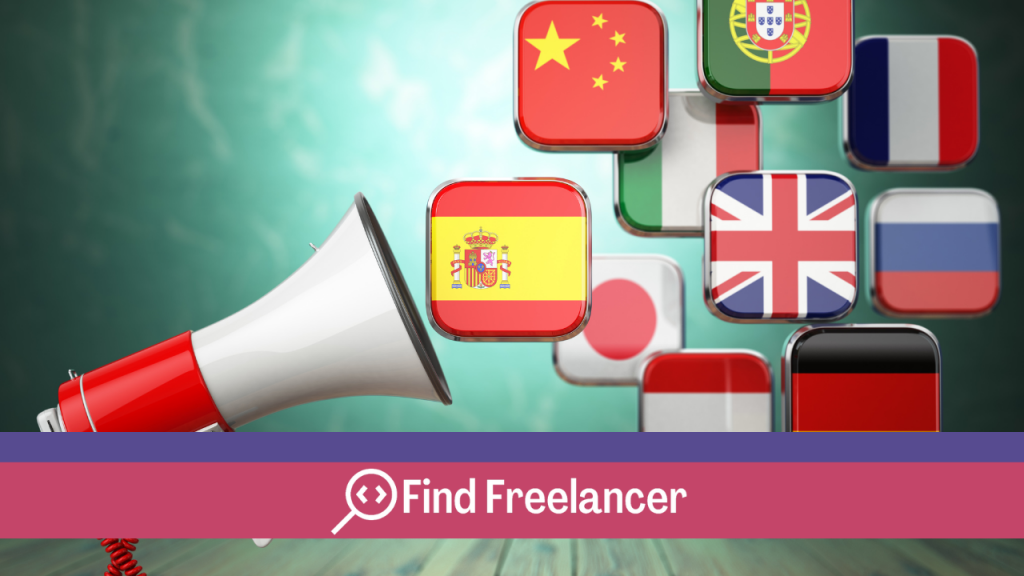Discovering the costs associated with translation services is essential for any company or individual considering the use of these language skills. In this article, we’ll explore in detail the crucial question: “How much does a translator cost per hour?” This recurring question gives rise to important considerations, particularly in terms of pricing, efficiency and perceived value. Let’s dive into an in-depth analysis of this question, shedding light on the factors that influence translators’hourly costs, and providing insightful perspectives to guide those seeking quality translation services at a fair rate.
What is a translator and what is his or her role?
A translator is a professional expert in converting texts from one language to another, faithfully preserving the meaning, tone, and nuance of the original content. Their role goes beyond mere linguistic transposition, encompassing a deep understanding of cultural and linguistic contexts. The translator must not only master the source and target languages, but also possess an in-depth knowledge of the subject matter.
The translation process involves carefully reading the original text, understanding its essence, and coherently recreating these elements in the target language. Translators can work in a variety of fields such as literature, legal, technical, medical, and marketing, adapting to the specifics of each sector.
The translation process involves carefully reading the original text, understanding its essence, and consistently recreating these elements in the target language.
Their role is essential in international communication, facilitating exchanges between cultures and enabling the effective dissemination of’information to a diverse audience. In short, the translator is the key link ensuring the fluidity and accuracy of linguistic exchanges on a global scale.
The translator is the key link ensuring the fluidity and accuracy of linguistic exchanges on a global scale.
What skills must a translator possess?
A competent translator needs to master several essential skills to ensure a smooth, accurate translation. First of all, a thorough knowledge of the source and target languages is essential, understanding cultural subtleties and linguistic nuances. Mastery of computer-aided translation tools and related technologies is crucial for optimum productivity. A specialized understanding of the subject matter, whether medical, legal, technical or other, is also required. The ability to meet deadlines, communicate effectively with the customer, and maintain confidentiality are complementary skills essential to excel in this complex and demanding profession.
What are the different types of projects for which we hire a translator?
Hiring a translator extends to a multitude of projects, each field requiring specific linguistic expertise. Translators are indispensable for translating official documents, legal contracts, and government communications. In the business sector, they facilitate the localization of websites, marketing documents and financial reports. The medical and pharmaceutical fields also require accurate translations to ensure that crucial information is understood. In addition, translators work in the literary, film and academic sectors, ensuring the international dissemination of cultural, educational and artistic content. Whether for business-to-business communication, cultural exchanges or international transactions, the translator’s role remains central.
.
What factors influence a translator’s rates?
A translator’s rates are influenced by various factors that reflect the complexity and value of the linguistic work provided. The main elements that impact a translator’s rate include:
- Languages concerned
- Level of expertise
- Specialization
- Delivery times
- Workload
- Content type
- Document format
- Translator’s reputation
- Market demand
By understanding these factors, customers can negotiate fair rates while ensuring the quality and accuracy of the translations provided.
How much does a translator cost per hour?
On the Malt platform, the rate barometer for translators is generally based on the daily rate rather than per hour. However, to get a rough estimate of the hourly cost, you can divide the average daily rate for translators (€299 according to current data) by the number of standard working hours per day.
Let’s take a standard 8-hour working day as a reference:
- Hourly cost=Daily rate / Number of hours worked per day
- Hourly cost=€299 / 8 hours
- Hourly cost≈37,38€/ℎeure
So, based on current data, the average hourly cost of a translator on the Malt platform would be around 37.38 euros per hour. However, it is important to note that these figures are based on averages and that actual rates may vary depending on various factors such as experience, specialty, and negotiation between translator and customer.
How to find and choose the right translator for your project
.
Selecting the right translator for your project requires a considered approach to ensure the quality and relevance of the translation. Here is a practical guide to finding and choosing the ideal translator:
Clarify your needs
Clearly define the nature of the project, the language pair required, any specialization, and delivery deadlines.
Search on specialized platforms
Explore platforms dedicated to freelancers, such as BeFreelancr, Fiverr, Upwork or Malt, where you can browse translator profiles, examine their skills, experience and reviews.
Evaluate language and technical skills
Make sure the translator is proficient in the languages involved and has a thorough understanding of your project’s specific field.
Check references and reviews
Check comments and reviews from previous customers to assess the quality of the translator’s work.
Request work samples
Request samples of previous translations to evaluate the translator’s accuracy, style, and linguistic consistency.
Establish clear communication
Clearly communicate your expectations, deadlines, and specific requirements to ensure you’re on the same page.
Negotiate rates and terms
Openly discuss rates, payment terms, and contract conditions to avoid confusion later.
Check availability
Ensure that the translator is available to meet your needs within the agreed deadline.
Prefer long-term collaboration
If you’re planning regular projects, consider collaborating with the same translator to ensure consistency.
Clear and concise contract
Formalize all details in a written contract, including rates, deadlines, and mutual expectations.
By following these steps, you maximize your chances of finding a competent translator suited to your specific projects.










